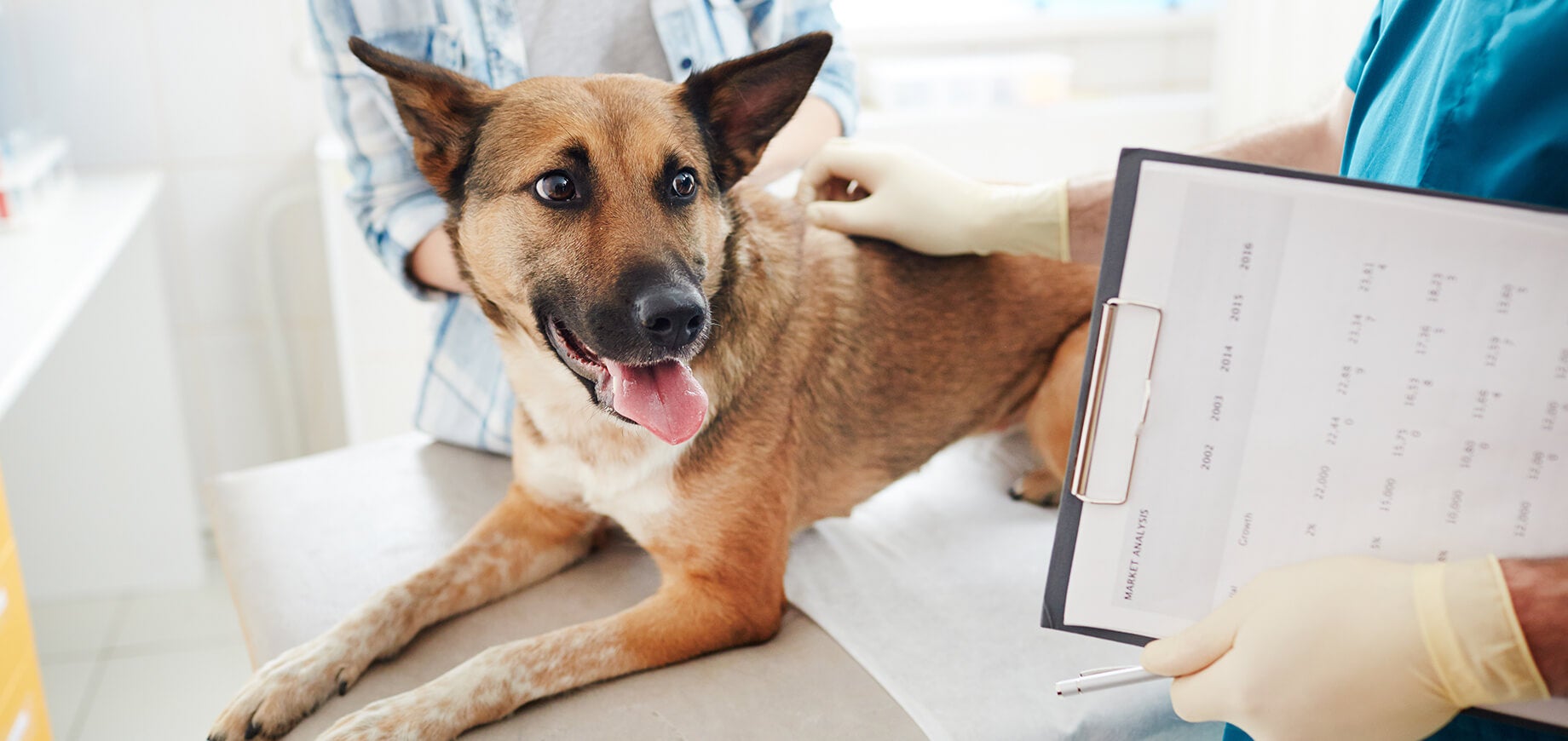Losing a pet is a heartbreaking experience. The bond between a dog and their human is special, and saying goodbye is never easy. If you suspect your dog is approaching the end of their life, it's natural to feel worried and unsure. Being aware of the signs of a dying dog allows you to make compassionate choices focused on its well-being.
Is your dog sick?
Many of the signs of an impending death in dogs can resemble symptoms of illness. While some illnesses can be treated, others might be degenerative or terminal. It's important to consult your veterinarian as soon as possible when your dog exhibits concerning symptoms to determine the underlying cause and discuss treatment options.
How do I know if my dog is dying?
While every dog is unique, there are some common signs that might indicate that your furry companion is nearing the end of their life. Observing the following signs can help you assess the situation:
7 signs of a dying dog
Being aware of the signs of a dying dog can help you ensure that you provide your pooch with utmost comfort during its final days. However, if your furry friend displays any of these symptoms, rush it to the veterinarian for a proper check-up; they will help you provide the right care:
- Pain and discomfort
Watching your dog struggle with pain is heartbreaking. If your dog is nearing the end of their life, be alert for signs of discomfort like whimpering, shaking, stiffness, or reluctance to move. Your veterinarian is your best ally in helping your dog find relief. They can offer pain medications and soothing therapies to ensure your dog's final days are as peaceful and comfortable as possible. Remember, physical changes like weight loss often accompany pain in older dogs.
- Weight loss
Following pain and discomfort, weight loss is another sign that your dog may be nearing the end of their life. A reduced appetite is a common issue during this time, making it especially hard to witness if your furry friend refuses even their favourite dog treats. Though heartbreaking, it's crucial to respect their changing needs by providing fresh water and gently offering food, focusing on comfort above all. This gentle approach to their physical needs is equally important when addressing sickness, which may present itself through various symptoms.
- Sickness
In the later stages of life, dogs often exhibit signs of sickness, such as vomiting or a general decrease in appetite, which are distressing yet natural parts of the aging process. Understanding that these symptoms contribute to their overall discomfort allows us to provide more compassionate care. As their bodies become more fragile, gastrointestinal disturbances like diarrhoea might occur, underscoring the need for constant, gentle care to make their final days as comfortable as possible.
- Diarrhoea
Diarrhoea and changes in bowel movements can signal that your dog's body is shutting down. This uncomfortable condition requires vigilant care to keep them clean and comfortable. Making certain your dog feels loved and comfortable during these times is vital. Yet, as their physical health wanes, you may also notice shifts in their mental state and behaviour, indicating a broad spectrum of support is necessary.
- Mental and behavioural changes
Aging can bring about notable changes in your dog's behaviour and mood, such as increased anxiety, restlessness, or a shift in sleeping patterns. Some dogs may seek more comfort from their owners during this time. Providing a supportive and loving environment is critical as they navigate these changes, which may include declining mobility, further challenging their quality of life.
- Loss of mobility
A noticeable decline in mobility, demonstrated by difficulty walking or getting up, marks a significant transition in your dog's life. Creating a comfortable living space that accommodates their limited mobility is essential, ensuring they can easily access their food, water, and favourite resting spots. As mobility decreases, incontinence may also become an issue, requiring additional adjustments to their care routine.
- Incontinence
The progression into senior years often includes changes in bladder and bowel control, requiring a compassionate and patient response. Using practical solutions like absorbent pads can help maintain your pet's dignity and comfort. This stage requires understanding and support, emphasising the deep bond between you and your dog. Each of these transitions, from managing pain to addressing incontinence, reflects the comprehensive care needed as your beloved companion nears the end of their journey.
Taking care of your dog's health
Keeping a close eye on their health and happiness becomes vital. Here's how to ensure the best possible care:
- Quality of life: Observe your dog's daily life. Are they able to participate in favourite activities? If pain or discomfort seem to outweigh moments of joy, consult your veterinarian for compassionate guidance.
- Regular vet visits: Don't skip those checkups, especially for senior dogs. Routine veterinary care allows for early detection of potential problems and proactive management of any existing conditions.
Discussing options with your vet if your dog is dying
If your dog receives a terminal diagnosis or their quality of life is severely declining, having open conversations with your veterinarian is important. Your vet can give you a better understanding of your dog's condition, provide options for palliative care, and help guide you through the difficult process of making end-of-life decisions, including humane euthanasia if appropriate.
Saying goodbye to a dog is never easy. Accepting the 0 dog helps prepare you, both emotionally and practically. Remember to focus on your dog's comfort, offer them gentle love, and remember the joyful times you shared. If you're struggling, don't hesitate to reach out to your vet or pet loss support groups for guidance.



